The Importance of Fish to Gambia and Gambians
Fish is an essential resource for Gambia and its people. The fishing sector plays a crucial role in the Gambian economy, as it does in West Africa in general.
Coastal towns like Sanyang heavily rely on pelagic fishes for both their daily protein intake and economic activities. Sanyang, known as a tourism hub, depends on the fish market to supply lodges and restaurant owners.
However, the fishing sector in the country has faced increasing competing demands in recent years, leading to overfishing and adverse socio-economic and environmental impacts. Foreign industrial trawlers and fishmeal and fish oil factories have added pressure to the marine resources, alongside artisanal fishermen providing for the community.
The sum that Mauritania, Senegal, Guinea Bissau, Guinea, Sierra Leone and Gambia lose annually to illegal fishing amounts to:
USD
A LOOK INTO Nessim Fishing and Fish Processing Co’s ACTIVITIES IN SANYANG
Amnesty International conducted extensive research in Sanyang and Banjul from June 2021 to April 2022. The investigation aimed to examine the human rights impact of overfishing in Sanyang and the role of fishmeal factories. The delegation interviewed various stakeholders, including the village chief, fishermen, fish processors, people in the hospitality business, Nessim Fishing and Fish Processing Co Ltd. (Nessim) factory daily workers, and the National Environmental Agency. Amnesty International also sought information from relevant ministries but did not receive any information. The delegation was unable to meet the manager of Nessim Trading Company in Banjul but Nessim provided a partial response to the request for information. Amnesty International sent right to reply letters to relevant authorities and fishmeal factories, but only received a reply from Nessim.
Read our press release about the launch of the report. Or download the full report in PDF format, available in English.
The report highlights the multiple fishing actors in Gambia, particularly in Sanyang, who contribute to the pressure on marine resources. The Gambian government has fishing agreements with the European Union and several countries, including Senegal, allowing foreign boats to fish in Gambian waters. Illegal, unreported, and unregulated (IUU) fishing is another challenge the government struggles with. The report also sheds light on the emergence of fishmeal and fish oil factories, which turn pelagic fishes into products exported for animal feed and supplements. The industry needs a significant amount of fish to produce fishmeal powder: it takes 4.5kg of fish to make 1kg of fishmeal powder. The lack of transparency in the supply chain and product exports raises concerns about compliance with human rights and environmental standards.
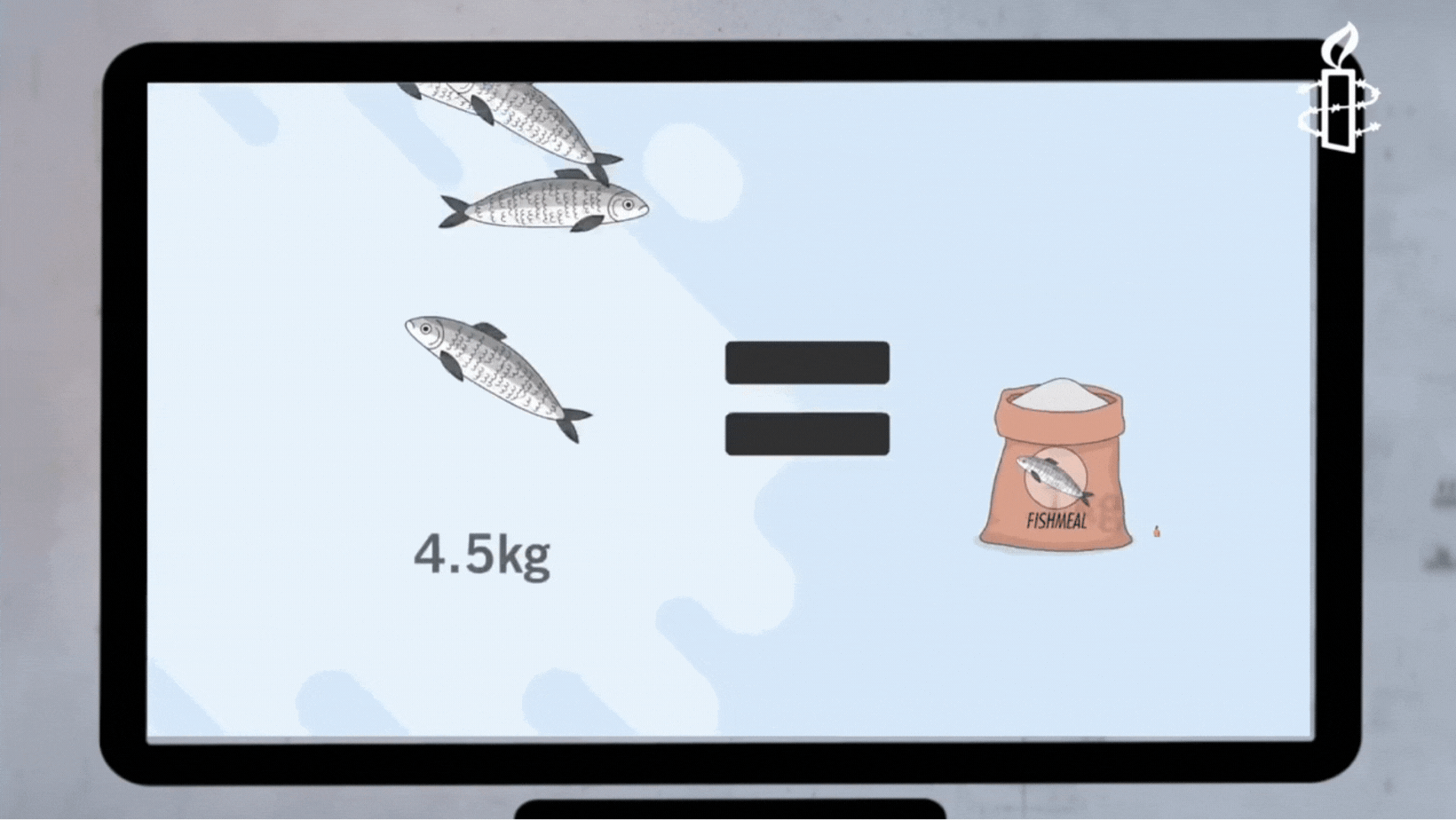
Socio-economic Impact on local communities
The fishing activities of all actors, including foreign industrial vessels and the fishmeal factory, threaten the economic and social rights of local communities. Artisanal fishermen face economic losses due to their fishnets being cut by foreign boats operating illegally near the shore. These industrial vessels deplete water resources and force artisanal fishermen to venture further into the sea. Artisanal fish processors and traders also suffer from fish scarcity and rising costs. Fishmeal factories compete with them directly, impacting their livelihoods. The reduction in marine resources due to overfishing contributes to the risk of food insecurity in the country. Local restaurant owners, lodges, and juice bars also struggle with fish scarcity, rising prices, and the noxious smell emanating from the fishmeal factory, leading to a decline in their businesses.
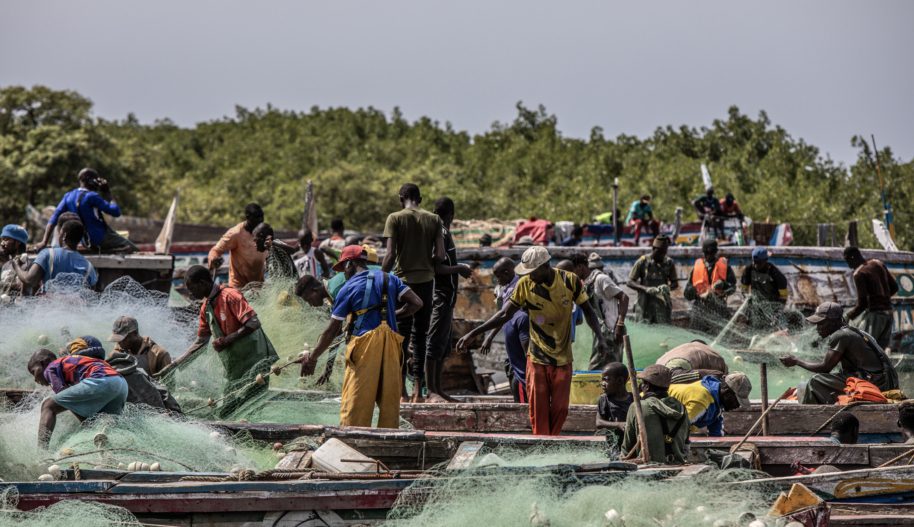
their nets if they go too close of big foreign industrial boats which often cut them in their passage.
I started fishing professionally in 1994. […] Things have changed drastically since […] 2017 and I heard that the government signed a contract with all those big ships companies.
Morro Camara, a fisherman from Sanyang
Impact on Traditional fishing activities
The Gambian fishing industry is facing challenges due to the increasing presence of foreign industrial trawlers, negatively affecting local artisanal fishermen. These trawlers are encroaching on the reserved artisanal fishing zone, causing significant losses for the local fishermen whose fishnets are being cut down frequently.
The problem has escalated in recent years, and the fishermen are witnessing the trawlers coming as close as five miles from the shore even though nine nautical miles (about 10 miles) from the shore is reserved to artisanal fishing. Those foreign vessels fish indiscriminately, depleting the water resources and forcing the traditional fishermen to venture further into the sea in search of fish. The competition with foreign boats has made fishing difficult, with a substantial decline in the fish population.
The use of improper net sizes and illegal fishing practices near the shore is a recurring issue, as the navy lacks resources to effectively monitor the entire coast.
An employee of the navy confirms that complaints from fishermen about their nets being cut are frequent, particularly in coastal areas.
The government needs to address this problem by compensating affected artisanal fishermen and providing better resources to the navy to combat illegal, unreported, and unregulated (IUU) fishing.
Ensuring the rights of artisanal fishermen to work under safe and healthy conditions, as guaranteed by international and regional human rights standards, should be a priority for the Gambian government.
IMPACT ON ARTISANAL FISH PROCESSORS AND FISH TRADERS
Artisanal fish processors in Gambia, including fish smokers and fish driers, are facing significant challenges. The majority of fish processors and small-scale fish traders are women, representing 80% of fish processors and 50% of traders.
Fish smokers buy fish and smoke them for sale, while fish driers sun-dry the fish they purchase. However, the availability of fish has become increasingly scarce, and prices have risen, impacting the livelihoods of these processors and by repercussion fish traders as well.
Foreign industrial boats and fishmeal factories have contributed to the decline in fish supply. The competition with fishmongers supplying local markets and fishmeal factories has made it difficult for fish smokers to sustain their businesses. The net operating profit for fish smokers is negative, as estimated by the European Commission.
The price of bonga fish in Gambia has also significantly increased since the arrival of fishmeal factories in 2017. Fish smokers who specialize in bonga and sardinella face tough competition, as these species are heavily captured by canoes working with the fishmeal factory and industrial vessels which export them.
The COVID-19 pandemic further exacerbated the challenges faced by artisanal fish processors, as they had to navigate restrictions while industrial fishing faced fewer limitations.
The Gambian government needs to protect the rights of these processors by addressing illegal fishing, limiting the catch of bonga and sardinella by foreign boats, and ensuring equitable and satisfactory conditions for their work. Overfishing poses a risk of fish scarcity and food insecurity, highlighting the need for sustainable fishing practices.
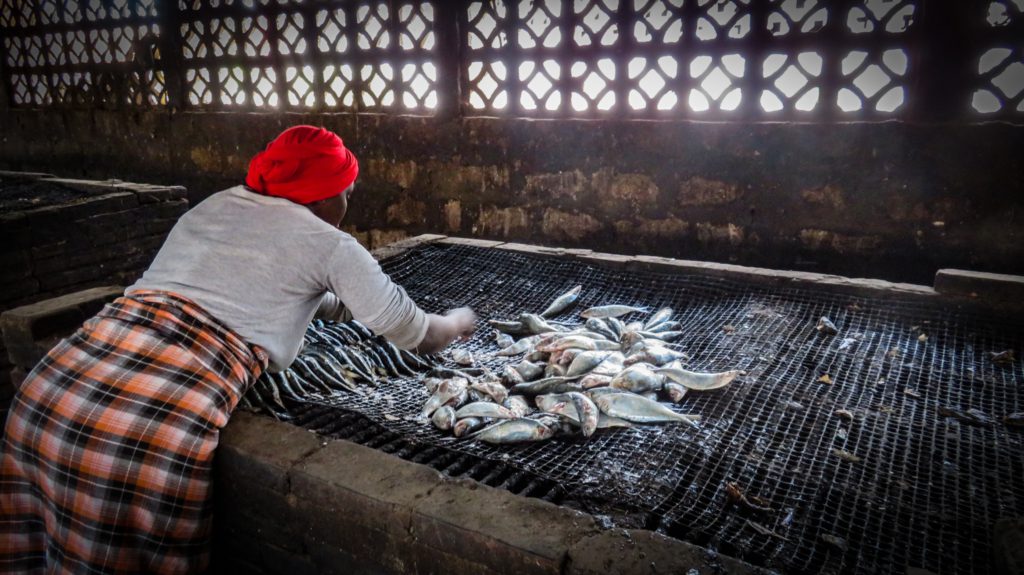
Before it was not difficult to get fish, now it is difficult to get fish and there is a huge difference in prices. From 2014 to 2016, three catfish would be 25 dalasi now four is 100 dalasi, the bigger one is 100 dalasi for just one.
Adama Jatta, fish smoker
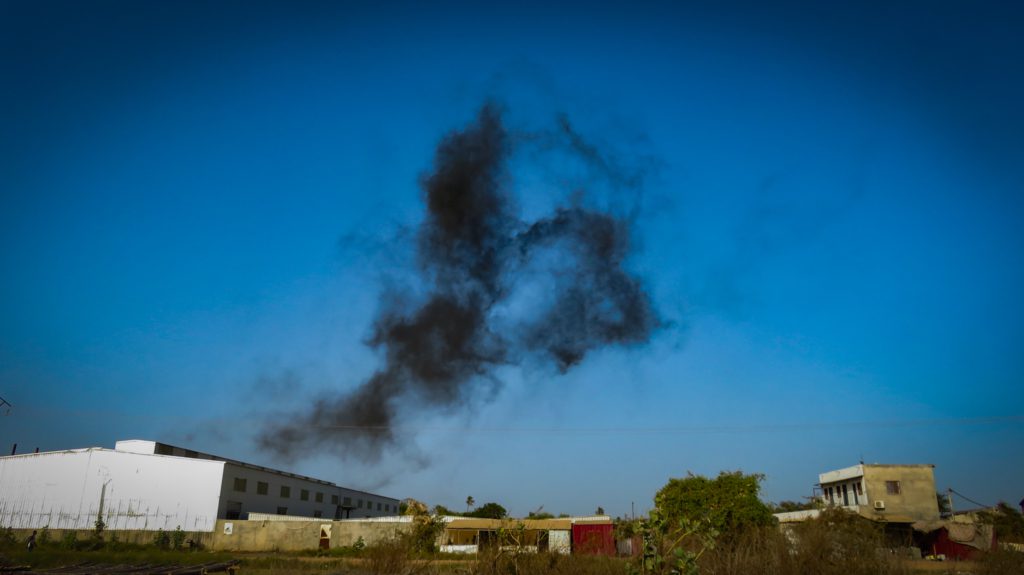
The fishmeal factory is doing worse than corona as far as my business is concerned.
“Mohammed”, a lodge owner in Sanyang
Impact on tourism and related businesses
The tourism industry in Sanyang, Gambia, has suffered from the combined effects of the Covid-19 pandemic and the presence of a fishmeal factory.
The pandemic led to a significant decrease in tourist arrivals and caused financial difficulties for businesses in the hospitality sector. Additionally, locals claim that the strong smell emanating from the fishmeal factory has deterred tourists from visiting and returning to the area.
The factory’s operations have negatively impacted the income, health, and overall experience of restaurant and lodge owners. The high season for tourism in Sanyang coincides with the factory’s activities, exacerbating the problem. The rising cost and scarcity of fish have further affected restaurant owners who rely on seafood for their businesses. Local fishermen face competition from foreign industrial boats, leading to a decline in fish availability.
The government’s failure to address these issues and protect the rights of the affected individuals, as dictated by its international legal obligations, is criticized. Suggestions for mitigating the situation include implementing social protections for the affected community, allocating resources to combat illegal fishing, and reconsidering the factory’s location.
The fishmeal factory itself should address the issue of odor pollution and explore ways to mitigate the smell. If mitigation efforts fail, compensation or relocation options should be considered.
IMPACT ON LOCAL WOMEN GARDENERS AND THEIR crops
Local women gardeners in the vicinity of the Nessim fishmeal factory in Sanyang, Gambia, have reported difficulties since the factory’s establishment.
The women Amnesty International spoke to were not consulted prior to the factory’s construction and have observed an increase in pests, including black flies and white/greenish pests, which they attribute to the factory’s odor. They now need to use more pesticides, resulting in higher costs and reduced productivity. The increase of pests damages their vegetables, particularly tomatoes, leading to significant losses.
The women are also concerned about the factory’s smoke affecting their health as they work long hours in close proximity to it.
Amnesty International calls for an investigation into potential violations of the right to food and health, environmental laws, and regulations. Nessim should cooperate fully with the investigation and take appropriate measures, including potential compensation or relocation, if found responsible for the negative impact on the women gardeners.
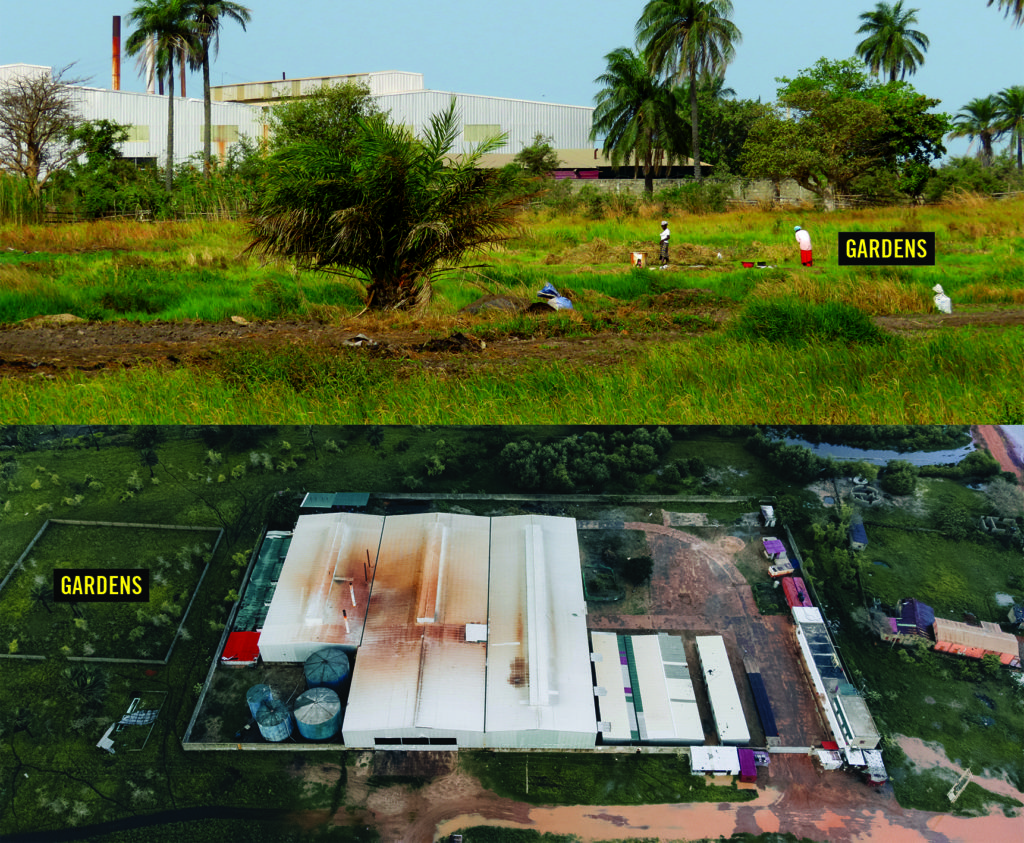
It is the smoke that is disturbing us; it gives problem with our chest; it is very dark.
Manneh, a gardener
The environmental impact
Environmental damage caused by overfishing is a significant issue in Gambia. Some fish species, including grouper, deepwater rose shrimp, cuttlefish, sardinella, and bonga, are already overexploited. Industrial trawlers and fishmeal factories contribute to this overexploitation.
When the fishmeal factories can’t take the catch of fishermen exclusively working with them, the fishermen often go back in the sea and dump the fish they can’t sell there. In Sanyang, at least on three separate occasions, media reported dead fish crowding the beach.
In addition, serious environmental concerns are raised regarding the treatment of wastewater by Nessim fishmeal factory.
The issue of the wastewater
All the three fishmeal factories in Gambia have faced issues with their wastewater treatment, as reported by the National Environment Agency (NEA), responsible for monitoring compliance with the Environmental Impact Assessment System (EIAS). These factories are required to have an environmental discharge permit and an on-site wastewater treatment plant.
Nessim fishmeal factory, in particular, has been reprimanded multiple times by the NEA. In 2018, their license was suspended because they claimed to have a discharging plant that was not present. The National Assembly Select Committee on the Environment visited the factory and recommended suspending its operations due to improper water treatment. The factory was accused of discharging waste onto the road and causing pollution. In response, the youth of Sanyang protested against the factory, claiming it was damaging the environment and vegetable gardens. After a six-month closure, during which a waste treatment plant was implemented and a wastepipe going into the sea was constructed, Nessim was allowed to reopen .
According to microbiologist Ahmed Manjang, a sample of the factory’s wastewater from 2018 contained excessive phosphate and unusually high levels of arsenic, which is carcinogenic. An investigation by the organization Changing Markets in 2019 alleged that the waste pipe was dumping waste only 50m into the sea instead of the required 350m. Nessim management did not confirm the pipe’s length but stated it followed NEA recommendations. Manjang argued that even if the pipe extended to 350m, it would still cause damage to the ecosystem.
Nessim factory has faced fines from the NEA in 2020 for inadequate water treatment and in 2021 for building an unauthorized platform along the beach. According to the NEA, the factory has an in-built water treatment facility, and is subjected to quarterly water analysis by the Department of Water Resources.
Local activists and community members complain about the noxious smell emanating from the factory. The smell is said to be unbearable and can reach the village depending on wind direction. Local businesses, including restaurants, have reported losses and threats to ecotourism due to the odor. Amnesty International calls for an investigation into the smell and potential violations of the right to health and a healthy environment.
Additionally, Nessim should have processes in place to remediate any adverse human rights impacts they cause or contribute to, as part of their due diligence. The company claims to respect and follow human rights laws but has not addressed the issue of the foul odor. Amnesty International urges the authorities to be transparent and publish investigation results into potential violations by the factory, while also calling on the NEA to ensure compliance with environmental laws and regulations during inspections.
VOICES of sanyang: #SaveGambianSeas #ProtectGambianCommunities
The members of the communities affected by the overexploitation of the seas through the activities of Nessim Fishmeal Factory and foreign industrial trawlers are sharing their stories with us. These firsthand stories are meant to let you know more about why we’re standing with Sanyang to save Gambian seas and protect Gambian communities rights.
Read MORE and act now.
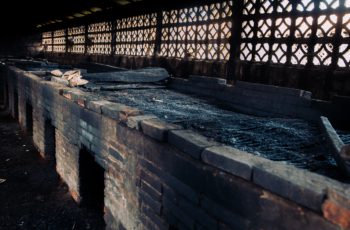 PUBLISHED ON WORLD OCEAN DAY – 8 JUNE
PUBLISHED ON WORLD OCEAN DAY – 8 JUNEAdja, the fish smoker
Read more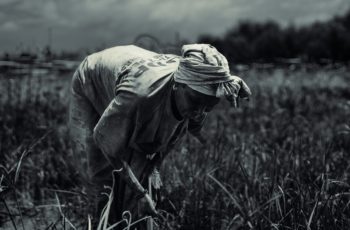 PUBLISHED ON 22 JUNE
PUBLISHED ON 22 JUNEHabibatou, the gardener
read more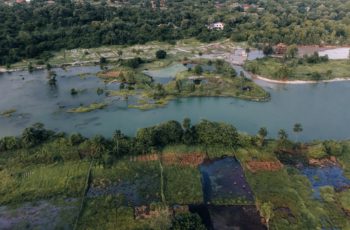 PUBLISHED ON 11 JULY
PUBLISHED ON 11 JULYBarry, the lodge owner
read more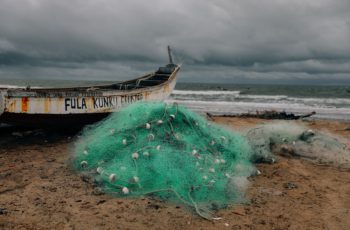 Published on 4 september
Published on 4 septemberIbrahima, the artisanal fisherman
read more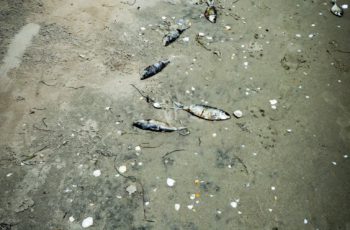 published on 11 SEPTEMBER
published on 11 SEPTEMBERMohamed, the activist
read more
